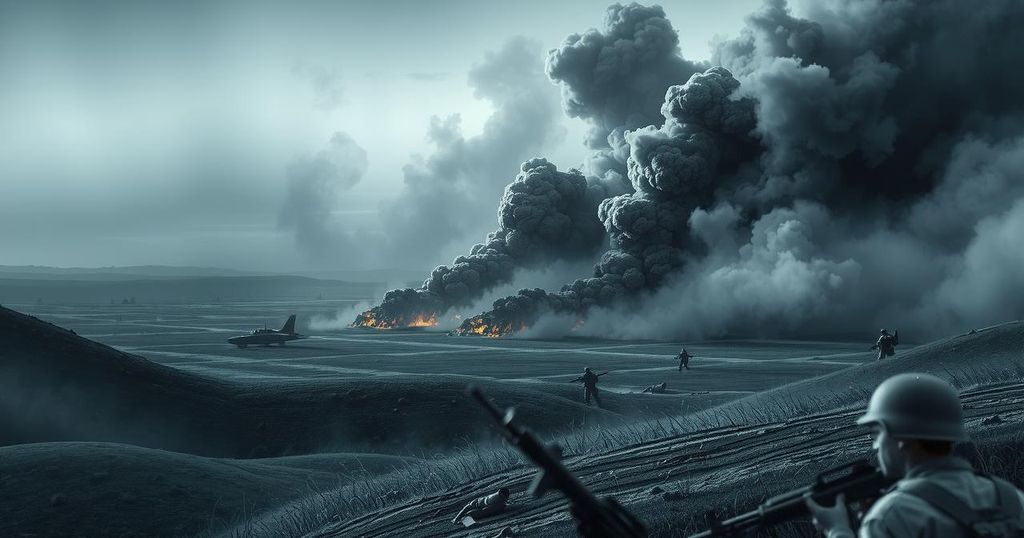The U.S. has escalated military actions against Houthi rebels in Yemen following airstrikes aimed at protecting maritime vessels. Both Secretary of State Marco Rubio and President Donald Trump have declared a commitment to intensify operations against the Houthis. Iran denies involvement in Houthi attacks, complicating the situation further. The recent airstrikes have resulted in significant casualties and signal a new phase in U.S.-Houthi relations.
Recent developments have heightened tensions between the United States and Iran-backed Houthi rebels in Yemen. Following a series of U.S. airstrikes aimed at mitigating Houthi threats to maritime vessels in a crucial shipping corridor, both parties have pledged to intensify their military actions. Secretary of State Marco Rubio emphasized the U.S. commitment to preventing the Houthis from exerting control over shipping routes, stating that these airstrikes represent a fundamental shift in U.S. strategy towards the rebels.
President Donald Trump has also declared that the United States will employ “overwhelming lethal force” until the Houthis abandon their offensive acts. The Houthis have recently targeted international shipping in the Red Sea, claiming to act in solidarity with Palestinians amidst ongoing conflicts in Gaza. Although attacks ceased following a ceasefire in January, the Houthis indicated intentions to renew hostilities against Israeli vessels due to recent humanitarian aid blockages to Gaza.
The overnight airstrikes resulted in significant casualties, with the Houthi-run Health Ministry reporting 31 fatalities, including women and children. U.S. officials confirmed that the airstrikes targeted key Houthi leaders effectively, marking one of the most substantial military responses since the Gaza conflict escalated in October 2023. Rubio noted that the Houthis had conducted numerous attacks against U.S. Navy vessels and commercial shipping, further justifying the strikes.
Iran has vehemently denied any involvement in coordinating Houthi attacks, with high-ranking officials claiming to play no role in the operational policies of allied militant groups. Iranian Foreign Minister Abbas Araghchi called upon the U.S. to cease its airstrikes, asserting that the U.S. could not dictate Iran’s foreign policy. The U.S. has previously captured Iranian military support intended for the Houthis, contributing to the ongoing tensions.
The recent airstrikes were executed solely by the U.S., marking a new phase in American military engagement with the Houthis. The USS Harry S. Truman carrier strike group, alongside multiple Navy ships, is currently positioned in the Red Sea to support ongoing military operations.
In summary, the recent airstrikes by the United States against Houthi positions signal a significant escalation in the ongoing conflict between these two parties. Both Secretary of State Marco Rubio and President Trump have emphasized a firm U.S. response to Houthi aggression, while Iran categorically denies any active participation in Houthi operations. The situation remains tense with both sides indicating their readiness for further escalation in military engagements, complicating the geopolitical landscape in the region.
Original Source: www.kaaltv.com






